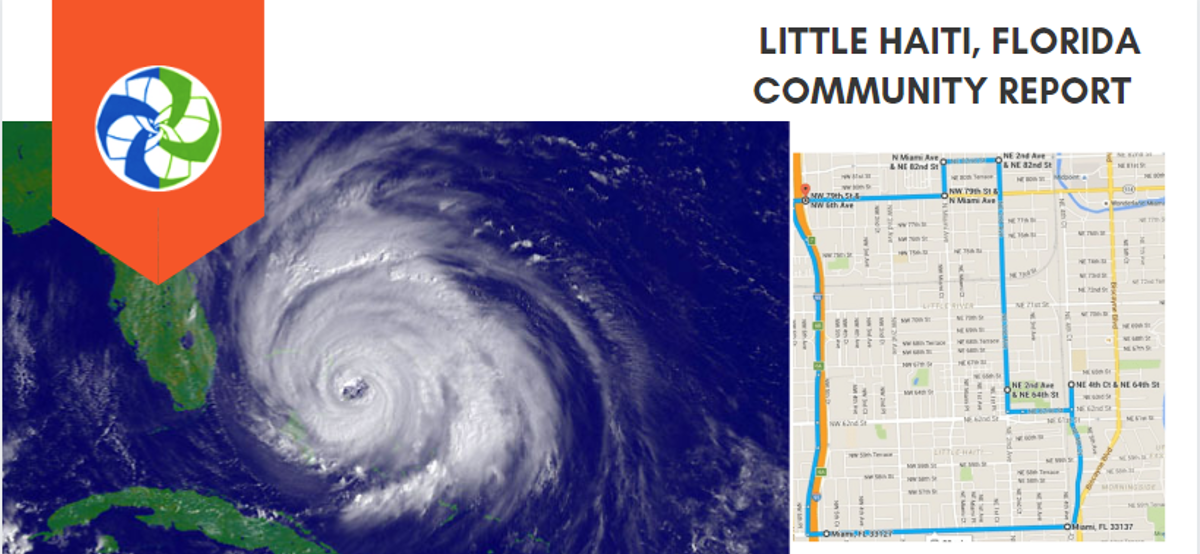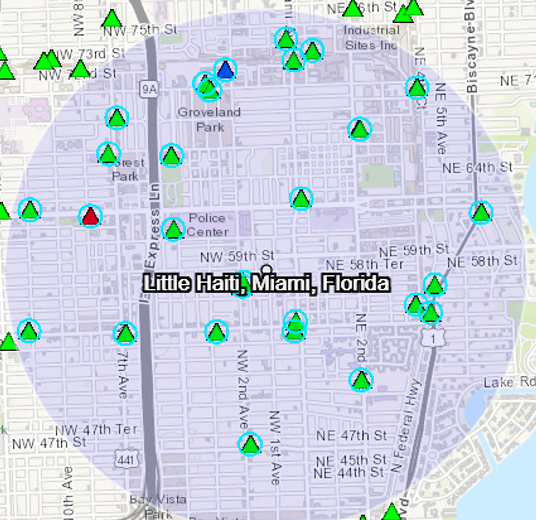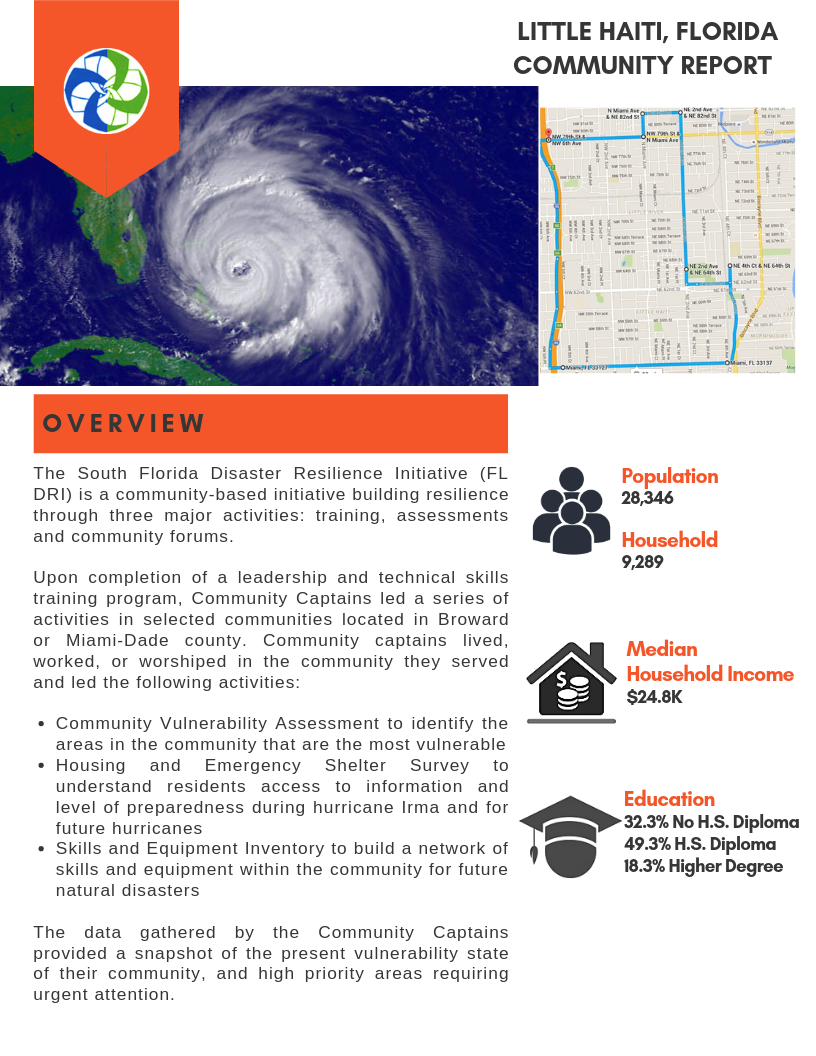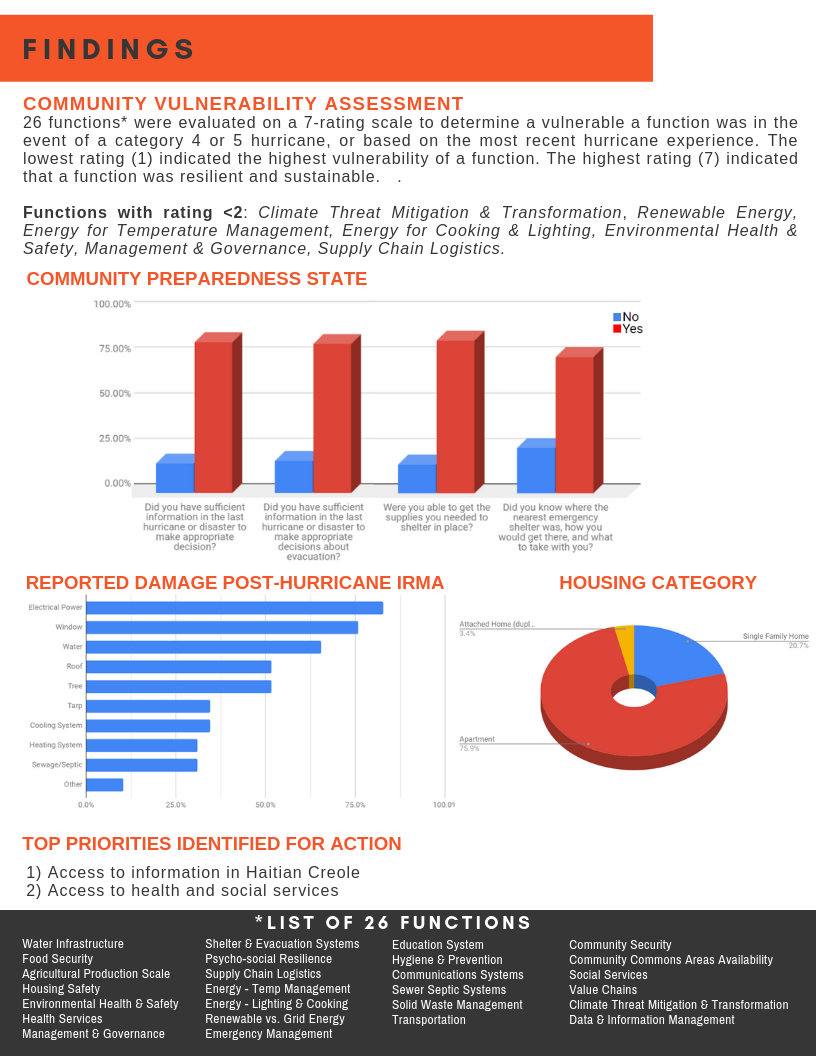Demographics
Population
Households
Median Income in Dollars
%
Percent of Population Without High School Diploma
%
Percent of Population with High School Diploma
%
Percent of Population with Higher Degree
Housing and Emergency Shelter after Hurricane Irma
- Damage by Type Electrical Power Outage 82.8%
- Window Damage 75.9%
- Water Damage 65.5%
- Roof Damage 51.7%
- Source of Repair Funds FEMA 34%
- Home Insurance 11%
- Rebuild Florida 10%
- Flood Insurance 10%
- Survey Respondents’ Housing Type Apartment 75.9%
- Single Family Home 20.7%
- Attached Home 3%
%
Percent Who Had Sufficient Information in the Last Hurricance/Disaster to Make Appropriate Decision
%
Percent Who Had Sufficient Information in the Last Hurricance/Disaster to Make Appropriate Decision About Evacuation
%
Percent Who Were Able to Get Supplies Needed to Shelter in Place
%
Percent Who Knew Location of Nearest Emergency Shelter, How to Get There, and What to Take With Them
Vulnerability Assessment Survey
Respondents ranked 26 different functions that are critical for a society to function. The rankings were from 1, which was “Most Vulnerable.” to 7, which was “Resilient and Sustainable.”
The 5 societal functions to the right had the lowest rankings, which appear in parentheses next to the function description.
- Top 5 Priority Gaps Identified Water Infrastructure (1.2)
- Climate Threat Mitigation & Transformation (1.38)
- Renewable vs. Grid Energy (1.43)
- Energy for Temperature Management (1.58)
- Energy for Lighting & Cooking (1.74)
Identified Hazards in Miami-Dade County
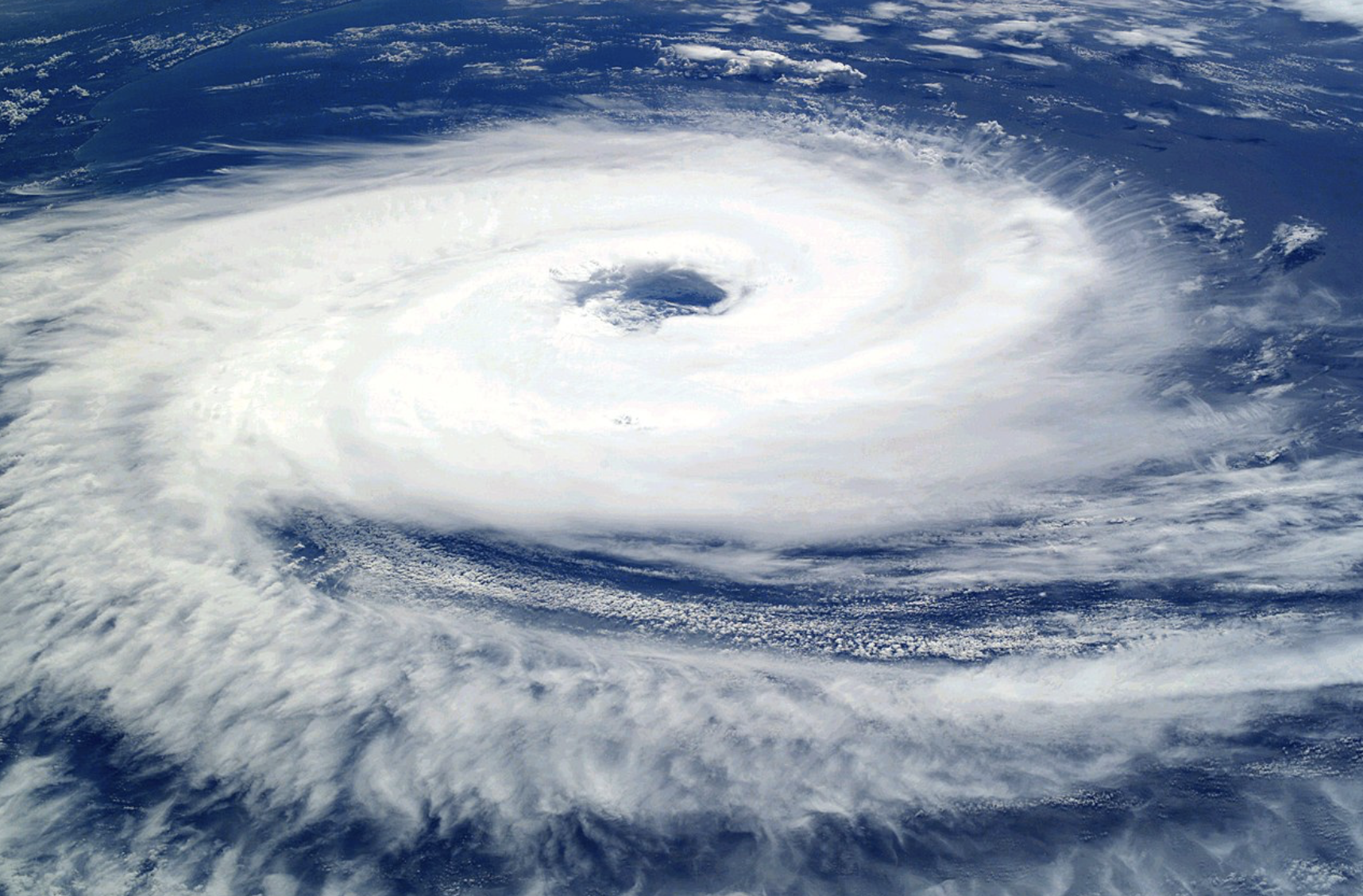
Hurricane or Tropical Storm
Miami-Dade County has a 16% chance of a tropical cyclone in any given year.
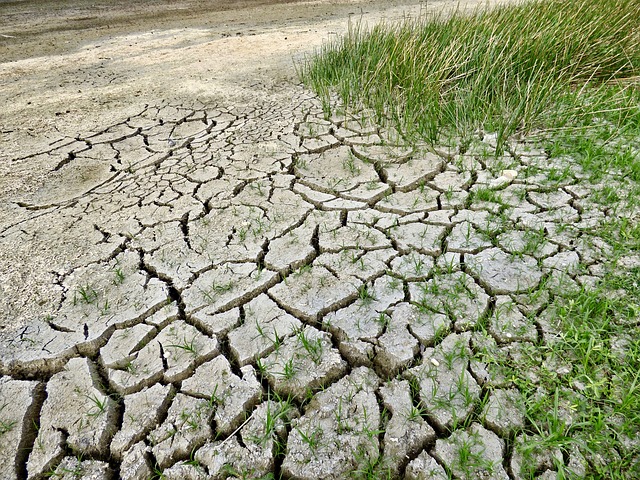
Drought
Miami Dade County has a 71% chance of drought in any given year. There were 48 droughts between 1950 and 2017.
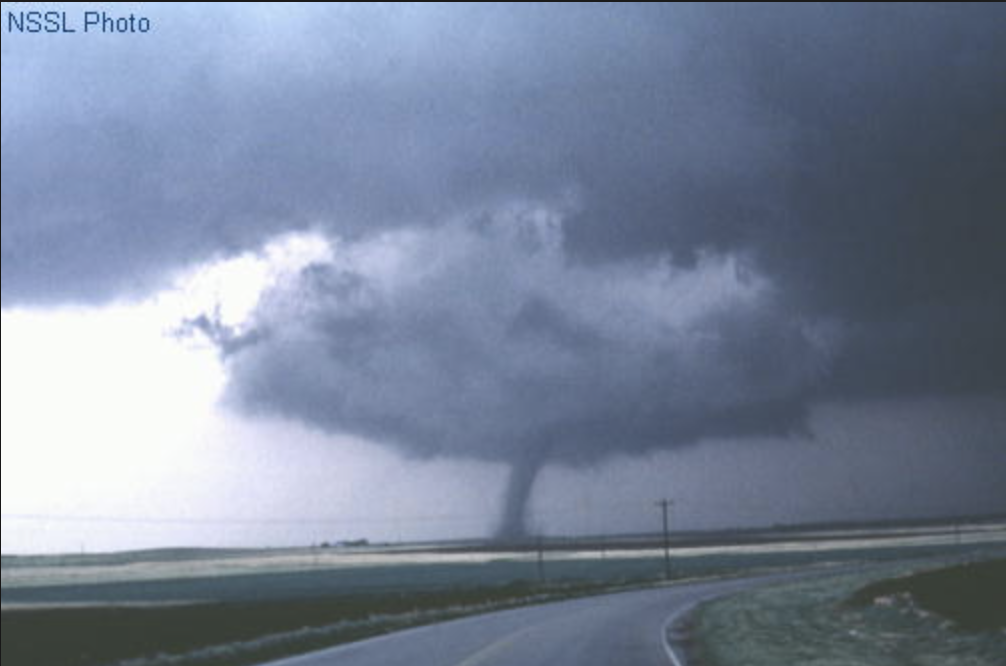
Tornadoes
There were 136 tornadoes in Miami Dade County from 1950 to 2017.
Florida Dept. of Environmental Protection Contamination Locator Map
Search for Superfund and Brownfield sites, Active and Pending Petroleum Cleanup sites and Other Contamination Cleanup sites on the Florida Department of Environmental Protection Contamination Locator Map. You can search by Address, Zip Code or City. You can print the information about contaminated sites, or click through to all the documents relevant to the site since it was identified as a contamination site.
Click on the map to the left to enlarge it. The yellow triangle shows the location of an “Other Waste Cleanup Site” in Allapattah. Details are available by map search.
What Little Haiti Residents are Saying
“Did not have information on the nearest emergency shelter.”
“No money to get supplies needed to shelter in place.”
“Water invaded the house.”
“Water in the streets due to stagnant water.”
“Rood removed”
Frequently Asked Questions
What were the top vulnerabilities identified in the Mission Critical Functions Surveys?
- Water Infrastructure
- Climate Threat & Mitigation
- Renewable vs. Grid Energy
- Energy for Temperature Management
- Energy for Lighting & Cooking
What were the top concerns discussed at the Community Forum?
- Communication due to language barrier.
- Access to health and medical services.
What are the community's proposed solutions for priority concerns and the resources needed to address them?
1. Have information available in Haitian Creole.
2. Having financial resources to support street captains who speak creole to work in the neighborhood.
3. Having someone from the community be part of the emergency operation center and collaborate with organizations in Little Haiti.
Florida Disaster Resilience Initiative Summary Report: Little Haiti
Contact Janice T. Booher, MS at JJLBooher@comcast.net or Joanne Perodin, MPH at Joanne.Perodin@gmail.com with questions.




This website is maintained by Unitarian Universalist Justice Florida’s Climate Resilience Ministry. It was established by the Green Sanctuary Committee of the Unitarian Universalist Fellowship of Boca Raton under EPA Grant #EQ-00D35415-0. Surveys discussed on this page were conducted under the auspices of Health Initiatives Foundation, Inc.’s Florida Disaster Resilience Initiative with funding from The Miami Foundation.
Website designed and maintained by Janice T. Booher, M.S.

